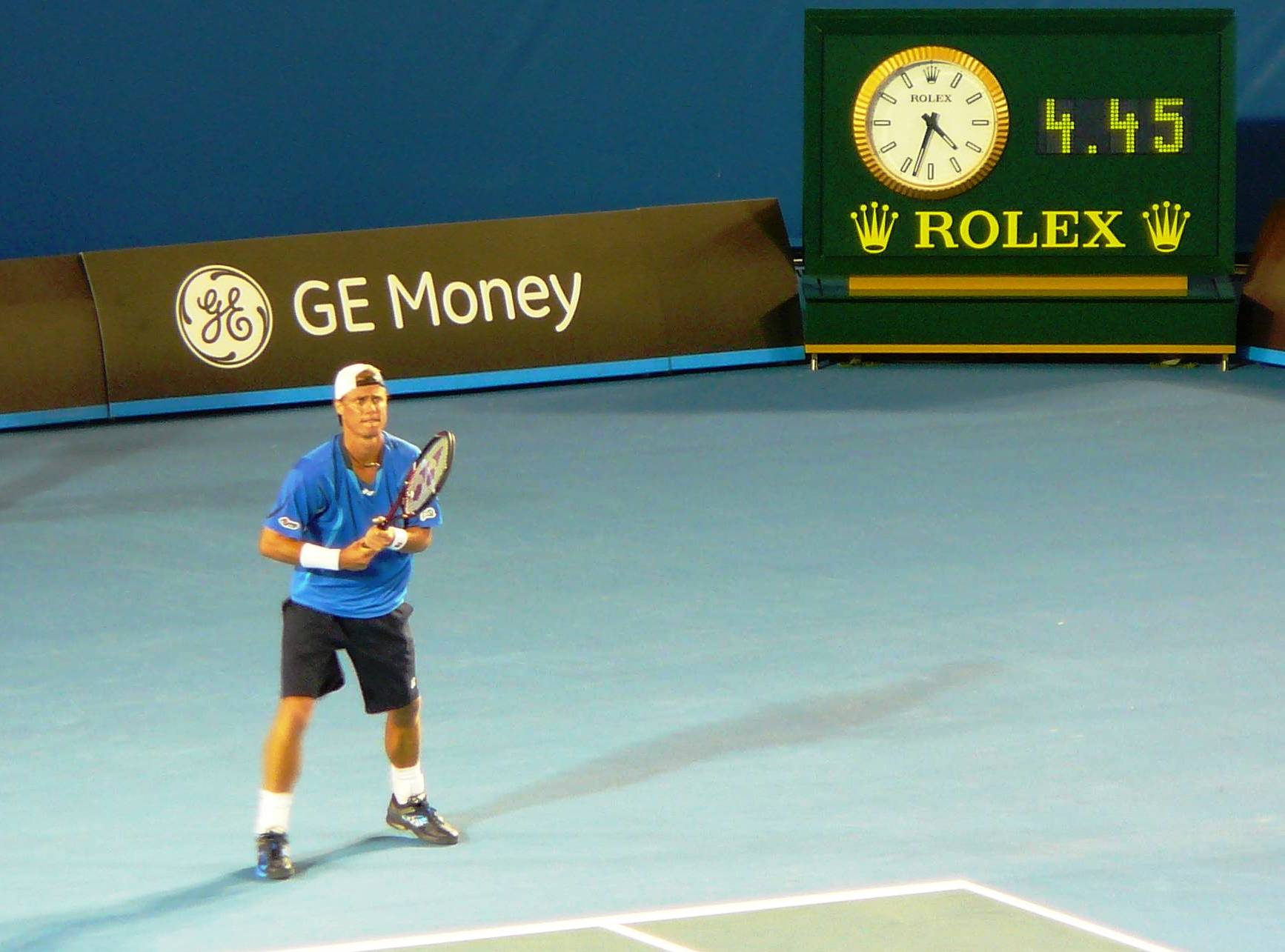[ad_1]
Karolina Muchova is proving the dark horse in the women’s draw at the US Open this year, adding the scalp of Jasmine Paolini to that of Naomi Osaka, and yet to drop a set. Of the four Last 16 matches played in the top half of the draw on Monday, the Czech’s took the least time, as she upset the tenacious Italian 5th seed, 6-3 6-3, in 69 minutes to reach the quarter-finals. Paolini is one of just two women to reach the 4th round at all 4 Grand Slam events this year, but she couldn’t build on her run in New York when she met the 28-year old Muchova, who reached her first major final at Roland Garros last year, and rose to a career high of No 8. That was the last time the Czech set foot on court for the next 10 months as she underwent wrist surgery, and only returned to action in June. This year’s US Open is only the 6th tournament of her come-back. In the on-court interview after her win, she described it as the ‘worst and most serious injury’ of a career that has been littered with them.
“I came to the tournament in different position, I would say,” Muchova said. “Not that many matches played. It was my second tournament on the hard courts. Now playing few matches, I feel, like, I’m building up the game. I feel better each day on court.
“I’m just thinking about the match I’m going to play, and trying to be prepared as best as possible. Then we’ll see how far I can go.”Paolini is also 28, and had never made it past the 2nd round in any of her 16 Grand Slam appearances before this year, when she reached the 4th-round in Australia and the final at both the French Open and Wimbledon before winning Olympic Gold in Paris in the doubles event. The amiable Italian with a sunny smile had hoped to go the distance at Flushing Meadows but met a roadblock in Muchova, who is back in the quarter-finals after reaching the semis here a year ago. Instead, Paolini ends her break-out season with an incredible 18 matches won at the majors, which is the most an Italian woman has ever compiled in a single year, and a massive upgrade on the four she previously had collected in her career.
Muchova admitted that she had been nervous at the start of the match, not helped by the windy conditions, and she began with a series of uncharacteristic errors, stumbling a few times, and slow to commit to moving forwards. Coming into the match, Muchova had won 49 out of 65 points at the net, but even her volleys let her down in the opening stages as she fell behind 3-1. Two games later, the Czech began to find her groove, employing slices, drop-shots and finally a superb reflex volley to help her break back and level at 3-3.
From there on in Muchova was pretty much in control, demonstrating her remarkable skills, such as a delicate drop-volley with which she ended a cat-and-mouse net exchange. She was also rock-solid from 1-3 down in the first set, dropping just 5 more points on serve, and only 2 in the whole of the second set. Paolini battled valiantly, and the packed crowd in Louis Armstrong Stadium were treated to some delightful shots from the Italian, like a crosscourt lob that sailed over the Czech’s head. Muchova broke Paolini at 2-3, and easily secured the next 4 games, winning 92% on first serve and scoring 9 winners en route to victory in an hour and 9 minutes.
“Very happy to win again in two sets,” Muchova said after the match. “I think it was a very tricky, tough match. I was actually a little bit nervous today. “I don’t even know why, but it was, kind of, a weird match. I had a weird feeling in my whole body, whole match, but yeah, I’m glad that I won.”Paolini could only muster 10 winners to Muchova’s 17, and her trusty forehand began to let her down in the home stretch, while the Czech made 11 of her 14 net points, taking her tournament total to 60 out of 79. Muchova’s all-court style of play is a bit of a throw-back to the way tennis used to be played, and it became the subject of some unwanted attention last week, when Chris Evert said of her: “She plays like a guy. She wants to play like a guy.” Ons Jabeur took issue with the statement, Muchova said it wasn’t true, and Evert apologised.
“I can’t tell if it’s unique, but yeah, I just like to change it up,” Muchova said. “I like to do what I do, basically, going to the net, and actually play a game, you know. Have more fun, not just grind back forehands, backhands. It’s how I see the game. It’s how I like to play it.” Muchova will bid to make a second straight US Open semi-final against Beatriz Haddad Maia, the No 22 seed from Brazil, against who she holds a 3-0 head-to-head lead. Haddad Maia, who got past 2018 Australian Open champion Caroline Wozniacki, 6-2 3-6 6-3, becomes the first woman from Brazil in the US Open quarter-finals since the legendary Maria Esther Bueno in 1968. The 28-year-old left-hander was given a 10-month suspension after failing a doping test in 2019, but successfully returned to reach the semi-finalist at the French Open last year.
She had never advanced beyond the 2nd-round at the US Open, though, before this year, but the Brazilian No 1 is making up for it in her 4th main-draw appearance in New York, and has now won 8 of her last 9 matches, following a run to the Cleveland final. “It’s very nice to see a lot of people, especially Brazilians cheering for me and following me during the whole year,” Haddad Maia said. “I think that gives me the motivation to keep going also, because I know there is a lot of girls and boys who can get inspired, and they can also dream, and see me on these big courts, and see that if I’m there, they also can do it. “I think it’s very special to be this person, and I will try to bring as [much] happiness as I can for everyone.” Haddad Maia needed a gruelling 2 hours and 41 minutes to outlast Wozniacki, the US Open runner-up in 2009 and 2014. “I respect a lot, Caroline, because of everything she reached, being No 1 in the world, a lot of titles,” Haddad Maia said. “She’s a very fighter player, so it’s not easy to play against her.” Both enjoyed relatively routine wins en route to the second week, with Wozniacki dropping zero sets and Haddad Maia losing just one, the first she played of the tournament against Elina Avanesyan. While the Brazilian had the seeding next to her name, Wozniacki, who was the oldest player left in the women’s draw, possessed the greater experience at this stage, her 8th round of 16 match at the US Open, so it was bound to be a tight contest.
[ad_2]



